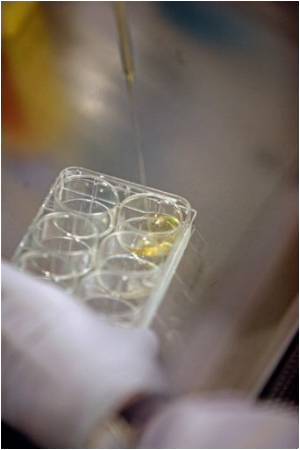A new study involving an Indian-origin researcher has suggested that about half of prostate cancer patients could potentially benefit from a new class of cancer-fighting drugs.

Half of prostate cancers have a genomic rearrangement that causes the fusion of two genes that believed to be the triggering event of prostate cancer.
"This type of gene fusion occurs in about 50 percent of prostate cancers, but the genes involved have been notoriously difficult to target therapeutically. We found that instead of targeting the gene fusion product directly, we could block the function of critical interacting partners, such as PARP1," said Arul Chinnaiyan, a Howard Hughes Medical Institute researcher, director of the Michigan Center for Translational Pathology and S.P. Hicks Professor of Pathology at the U-M Medical School.
"Our studies suggest that the total population of patients who could benefit from PARP inhibition could be significantly expanded," says Chad Brenner, who is the first author on the study.
The study was recently published in the journal Cancer Cell.
Source-ANI





![Prostate Specific Antigen [PSA] Prostate Specific Antigen [PSA]](https://www.medindia.net/images/common/patientinfo/120_100/prostate-specific-antigen.jpg)







